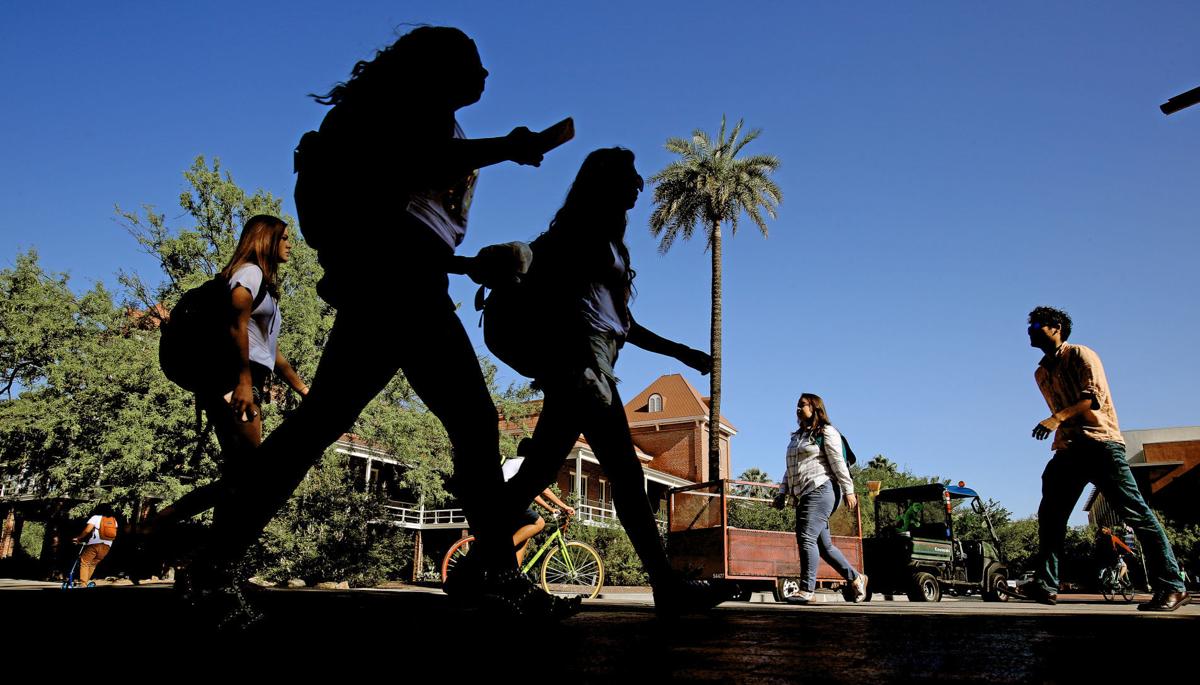PHOENIX — Arizona’s three state universities could be on the financial hook for hundreds of millions of dollars for what an attorney contends is overcharging of out-of-state students.
In a new lawsuit, attorney Lance Entrekin says that under a 1996 federal law, states that allow immigrants living in the United States without legal status to pay in-state tuition must offer the same benefits to students from other states.
That wasn’t an issue when the Arizona Board of Regents decided to offer in-state tuition to recipients of the federal Deferred Action for Childhood Arrivals program, who were brought to this country illegally as children. At that point, the contention was that DACA recipients are legally present, an argument accepted by Maricopa County Superior Court Judge Arthur Anderson.
But last year, the state Court of Appeals reversed that ruling, concluding that a 2006 voter-approved initiative limits in-state tuition to citizens and legal residents, a decision affirmed last month by the Arizona Supreme Court.
What’s important, Entrekin says in court filings, is that the appellate judges in their ruling pointed out the federal law requiring equal treatment of out-of-state residents with those not here legally. Yet the Board of Regents kept the DACA tuition policy in place all of this school year.
He wants the regents to refund the difference, not only for his three clients who are residents of other states but for every out-of-state resident who paid tuition that in some cases ran $20,000 a year higher than what DACA recipients were paying.
A spokeswoman for the Board of Regents said there would be no comment on pending litigation.
Central to the case is the federal Personal Responsibility and Work Opportunity Reconciliation Act of 1996, also known as the Welfare Reform Act. One part was designed to remove the availability of public benefits as an incentive for immigration, Entrekin said.
The key provision says that those not lawfully present in the country cannot use their state residency for “any postsecondary education benefit” unless every other U.S. citizen or legal resident is eligible “without regard to whether the citizen or national is such a resident.”
The regents’ policy was that DACA recipients qualify for in-state tuition if they meet other Arizona residency requirements.
Entrekin said the regents were put on notice last June about the federal law, with the appellate judges specifically citing that statute. Yet his clients and others were still charged full out-of-state tuition for the current year.
For example, the regents set resident undergraduate tuition for new students at the University of Arizona at $12,228. That compares with $35,658 for students from other states.
The difference is not quite as great at Arizona State University, $10,792 for resident undergrads versus $27,372 for nonresidents. And Northern Arizona University set tuition at $11,059 for residents and $24,841 for nonresidents.
Most immediately, Entrekin wants a refund for California resident Mikayla Foss and Maryland resident Abigail Garbarino, who were attending ASU, and Michigan resident Eleanor Wiersma, who was going to the UA.
But Enterkin also wants Maricopa County Superior Court Judge Teresa Sanders to expand the case to a class-action lawsuit, saying that all the potential plaintiffs are in identical situations — and each is entitled to the same refund, along with interest.
Reports from the Board of Regents show there are about 140,000 undergraduates in the university system.
Of that tally, about 42,000 are from other states, not counting those from other countries who are not covered by the federal law granting them the same tuition as those not here legally. Even assuming a tuition differential of just $15,000, refunds could total more than $600,000 if the lawsuit prevails.





